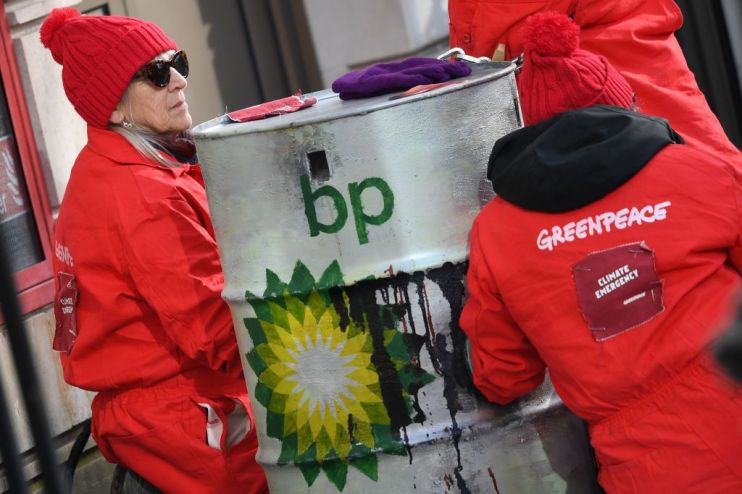Under the pump: the challenges facing BP’s new boss in the 2020s

When Bob Dudley bowed out after a decade at the helm of BP last week, the praise was both effusive and universal.
During his tenure, Dudley managed to plot a course between the Scylla and Charybdis of 2010’s Deepwater Horizon disaster and the mid-decade collapse of the oil market while maintaining BP’s position as the third-biggest dividend payer on the FTSE 100.
These challenges, however, pale in comparison with those faced by his successor Bernard Looney, who will this afternoon lay out his vision for the future of the oil giant.
First among these, and likely to be the defining issue of this new decade, is the question of how BP will respond to ever-growing pressure regarding BP’s role in the transition to a green economy.
Looney is widely expected to announce plans to clean up of the firm’s emissions, but the real proof of the company’s ambitions will be in the way the firm decides to use the proceeds from its $15bn disposal programme, which is central to reducing the firm’s $45bn debt pile.
According to Nicholas Hyett, equity analyst at Hargreaves Lansdown, Looney has two options, both of which have their upsides and downsides.
First, he could follow the example of fellow major Shell, and commit everything to oil and gas production in an attempt to make the most of an industry that many believe is in terminal decline.
It’s a move that would be hugely controversial in the light of media and investor pressure, but gambles on the old adage that it is better to have cash now than a stranded asset later, says Hyett.
Alternatively, he could put everything into BP’s growing biogas and solar renewables assets, which would win the firm plenty of admirers but present a severe challenge to cash flow, with such assets set to be “a cash sink, at least in the short term”.
“There’s no easy answer”, says Hyett, but growing investor pressure will have Looney nervous about the potential backlash to his decision, with high profile groups such as the Church of England moving money into funds aligned with the goals of the 2015 Paris agreement.
Mark van Baal leads Follow This, an investor group dedicated to making oil majors commit to aligning with the Paris accords.
Sign up to City A.M.’s Midday Update newsletter, delivered to your inbox every lunchtime
Last week Norwegian state giant Equinor said it would take responsibility for its “scope three” emissions – those produced by consumers using its products – as well as halving the carbon intensity of its emissions by 2050 after pressure from the group.
Van Baal is confident that Looney will make a similar pledge, but vows to “maintain the pressure” on the company, who in 2018 spent $500m on renewables projects, only three per cent of its total capital expenditure.
“Firms such as Equinor and Shell have vowed to half their footprint by 2050, but it’s not enough. While these companies continue to expand, it’s just a smokescreen”, he says.
Others are more direct. A source in the oil and gas industry said that carbon intensity targets such as that announced by Equinor are little more than “window dressing”:
“Committing to 50 per cent intensity reductions is not much of a commitment at all. What the climate cares about are absolute metrics, not intensity ones”.
Van Baal is adamant that investors need not suffer if companies like BP decide to scale back exploration operations, an often cited argument for continuing to pump money into bringing new fields onstream.
“Today’s investment has nothing to do with current dividends. The dividends that investors receive today are due to investments made 20 years ago”.
As if this wasn’t enough, Looney must also contend with an oil market as depressed as it has been since 2015, with the growing supply surplus weighing heavily on prices.
Last week Brent crude entered a bear market after dropping 20 per cent in price, and it’s unclear what kind of shock would be required in order to lift them to the levels necessary for majors to sustain profit.
Over the course of 2019, prices fell on average $7 year on year to $64, which BP blamed as the overriding factor in its 21 per cent fall in yearly profit.
As he bowed out, Dudley said that he was confident that “BP will continue to successfully navigate the rapidly changing energy landscape”. He may yet be right, but whatever the eventual outcome, it’s clear that there are still some rough waters ahead.